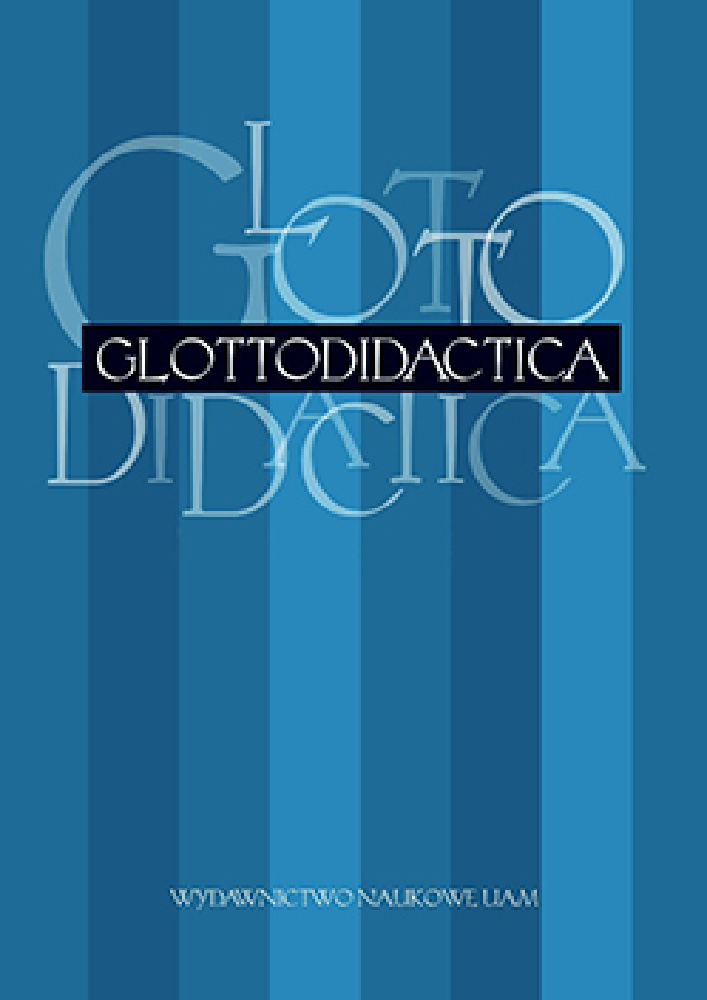Abstract
The author discusses the status and role of questions in foreign language teaching. Although they are essential tools of managing the learning process, the topic does not enjoy much interest in the methodological literature. Therefore it seems advisable to discuss the methodological problems of foreign language teaching in a broader context including both the activation of learners and teachers with questions and application of questions while working with a foreign language text
Literaturhinweise
Bausch, K. R. / Christ, H. / Krumm, H. J. (2007) (Hrsg.). Handbuch Fremdsprachenunterricht. (Vol. 5). Tübingen: Francke Verlag.
Gaudig, H. (1963). Didaktische Präludien. In: L. Müller (Hrsg.), Die Schule der Selbsttätigkeit. Bad Heilbrunn: Klinkhardt.
Giel, K. (1968). Über die Frage mit besonderer Berücksichtigung der Lehrerfrage im Unterricht. In: G. Bräuer / K. Giel / W. Loch / J. Muth (Hrsg.), Studien zur Anthropologie des Lernens. Neue pädagogische Bemühungen. Bd. 36 (S. 35–64). Essen: Neue Deutsche Schule Verlagsgesellschaft. http://www.klaus-giel.de/doc/FrageA.pdf (Zugang am 12.05.2018).
Hallet, W. / Königs, F. (2013). Handbuch Fremdsprachendidaktik. Seelze Velber: Klett/Kallmeyer.
Hartl, B. / Piontek, F. (1989). Zu Funktionen und Aufgaben von „Fragen zum Text“ aus lernpsychologischer Sicht. DaF, 1, 8–114. DOI: https://doi.org/10.37307/j.2198-2430.1989.01.04
Heuer, H. (1983). Die Fragestellung im Fremdsprachenunterricht. In: G. Solmecke (Hrsg.), Motivation und Motivieren im Fremdsprachenunterricht (S. 228–239). Paderborn: Schöningh.
Heyd, G. (1990). Deutsch lehren. Grundwissen für den Unterricht in Deutsch als Fremdsprache. Frankfurt/M: Peter Lang.
Huneke, H. W. / Steinig W. (1997). Deutsch als Fremdsprache. Berlin: Erich Schmidt.
Iluk, J. (1993). Polsko-niemiecki słownik wyrażeń i zwrotów lekcyjnych. Warszawa: WSiP.
Iluk, J. (1998). Entwicklung der Sprachfertigkeiten aus der Sicht der neuesten Fremdsprachencurricula. Katowice: Wydawnictwo Uniwersytetu Śląskiego.
Iluk, J. (2001). Der Einkauf. Oder: Der Tag ist schon wieder hin! Integrative Fertigkeitsentwicklung mit Lehrwerktexten. Fremdsprache Deutsch. Kombinierte Fertigkeiten, 4, 19–20.
Iluk, J. (2013). Jak (de)motywujemy uczniów na lekcjach języka obcego. Języki Obce w Szkole, 4, 67–74.
Iluk, J. (2016). Wpływ tytułu tekstu oraz konstruktywistycznego podejścia na efektywność przyswajania wiedzy z podręczników do nauczania geografii. Acta Geografica Silesiana, 24, 61–70.
Iluk, J. / Gabryś, D. (1995). Polsko-angielski słownik wyrażeń i zwrotów lekcyjnych. Warszawa: WSiP.
Jung, U. O. H. (2009). Praktische Handreichung für Fremdsprachenlehrer. 5. Auflage. Frankfurt/M.: Peter Lang.
Kerry, T. (1987). Classroom questions in England. Questioning exchange, 1, 32–33 .
Kraft, W. / Rybarczyk, R. / Schmidt, M. (2005). Deutsch aktuell 3. Kompakt. Poznań: Klett.
Niegemann, H. / Stadler, S. (2001). Hat noch jemand eine Frage? Unterrichtswissenschaft, 29 (2), 171–192.
Pfeiffer, W. (2001). Nauka języków obcych. Od praktyki do praktyki. Poznań: Wagros.
Pobojewska, A. (2014). Waga pytań w procesie edukacji. In: P. Mroczkiewicz / W. Kamińska (Hrsg.), Jak uczyć, by nauczyć filozofii? Refleksje akademików i praktyków (S. 107–120). Warszawa: Wydawnictwo UKSW. http://kronika.uni.lodz.pl/pliki/waga-pyta-w-procesieedukacji1-tekst-zainspirowany-cwiczeniem-berri-hessena-oraz-roberta-pilata.pdf (Zugang am 15.05.2018).
Seifried, J. / Sembill, D. (2005). Schülerfragen – ein brachliegendes didaktisches Feld. Zeitschrift für Berufs- und Wirtschaftspädagogik, 101 (2), 229–245. Online: Konstanzer Online-Publikation-System (KOPS) (Zugang am 15.06.2018).
Storch, G. (1999). Deutsch als Fremdsprache – Eine Didaktik. München: Wilhelm Fink.
Wißner-Kurzawa, E. (1987). Zur Optimierung von grammatikalischen Instruktionstexten. Frankfurt/M: Peter Lang.
Żydek-Bednarczuk, U. (1995). Komunikacja dydaktyczna na lekcjach języka polskiego. Z Teorii i Praktyki Dydaktycznej Języka Polskiego, 14, 93–103. DOI: https://doi.org/10.31261/TPDJP.1995.14.08
Lizenz
Copyright (c) 2018 Jan Iluk

Dieses Werk steht unter der Lizenz Creative Commons Namensnennung - Keine Bearbeitungen 4.0 International.
Authors
Authors of texts accepted for publication in Glottodidactica are required to complete, sign and return to the editor's office the Agreement for granting a royalty-free license to works with a commitment to grant a CC sub-license.
Under the agreement, the authors of texts published in Glottodidactica grant the Adam Mickiewicz University in Poznań a non-exclusive, royalty-free license and authorize the use of Attribution-NoDerivatives 4.0 International (CC BY-ND 4.0) Creative Commons sub-license.
The authors retain the right to continue the free disposal of the work.
Users
Interested Internet users are entitled to use works published in Glottodidactica since 2016, under the following conditions:
- attribution - obligation to provide, together with the distributed work, information about the authorship, title, source (link to the original work, DOI) and the license itself.
- no derivatives - the work must be preserved in its original form, without the author's consent it is not possible to distribute the modified work, such as translations, publications, etc.
Copyrights are reserved for all texts published before 2016.
Miscellaneous
Adam Mickiewicz University in Poznań retains the right to magazines as a whole (layout, graphic form, title, cover design, logo etc.).





